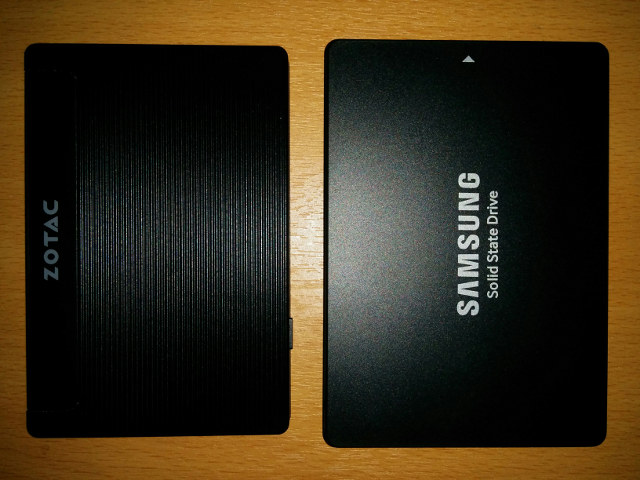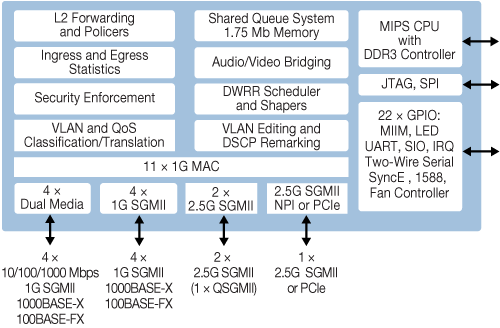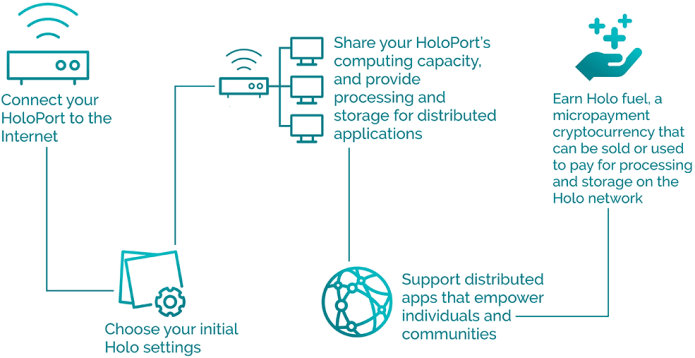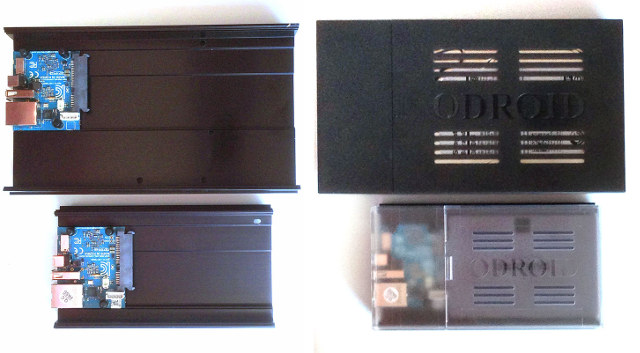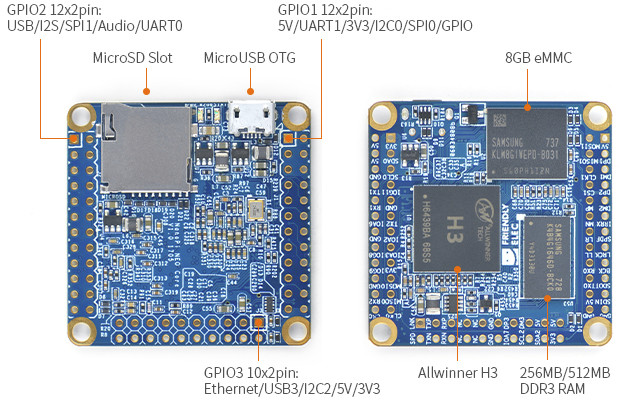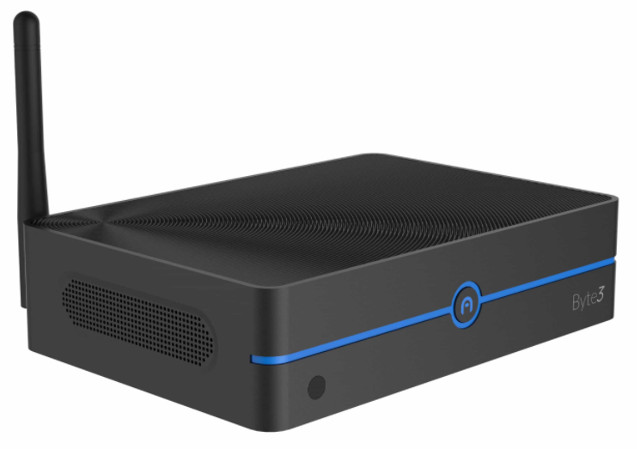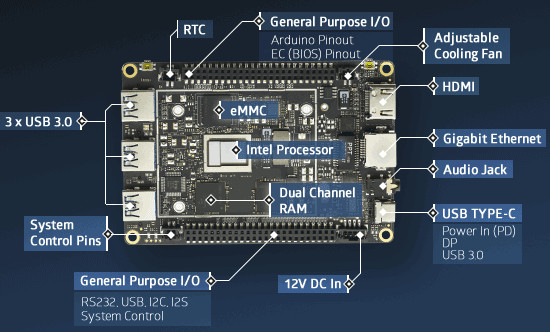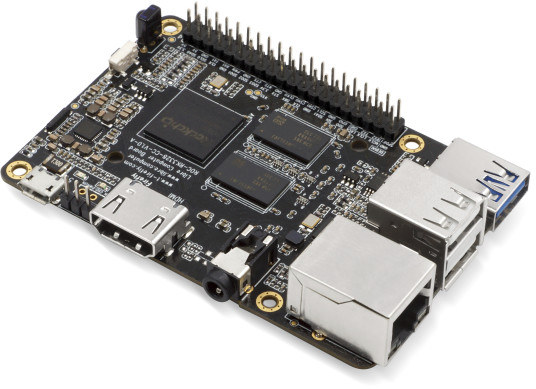What makes the Zotac ZBOX PI225 so interesting is that this is the first true ‘card’ form-factor mini PC. It is a mini PC that looks like a SSD. Whilst Intel replaced the ‘stick’ form-factor with a similar ‘card’ form-factor for their next generation mini PCs they also required a ‘dock’ in order to use them. The difference with the PI225 however is that it actually is a standalone mini PC and includes all the necessary input/output ports. Intrigued by this new form-factor I decided to purchase one and the following is my review of its performance and capabilities. The Zotac ZBOX PI225 is a fanless device which features an Apollo Lake N3350 SoC with 32GB of storage pre-installed with Windows 10 Home, 4GB RAM, 802.11ac WiFi, Bluetooth 4.2, two USB Type-C ports, a micro SD card reader and a power connector. Importantly it comes with all the accessories you […]
Microsemi VSC7513 and VSC7514 MIPS SoCs for Ethernet Switches Get Initial Mainline Linux Support
Microsemi VSC7514 is a 10-port Gigabit Ethernet (GbE)/SMB switch supporting a combination of 1G and 2.5G Ethernet ports, and VSC7513 comes with basically the same features except it’s limited 8 ports. Both SoCs include a MIPS processor with DDR3 memory interface, and support industrial and enterprise Ethernet switching features such as VLAN and QoS processing. Microsemi VSC751x Ocelot family was unveiled in June 2016, but I only heard about them today, as Free Electrons recently added initial support for VSC7513 & VSC7514 chip into mainline Linux with the patch series available here. Microsemi VSC7514 specifications & features: CPU / Memory Interface – Integrated 500 MHz MIPS 24KEc CPU with MMU and DDR3/DDR3L SDRAM controller Ethernet Connectivity – 4x dual media copper ports, 2x 1G SGMII ports, and 2x 1G/2.5G SGMII ports Host CPU Interfaces – PCIe 1.x and NPI CPU interface Internal shared memory buffer (8 queues per port) Jumbo […]
Holo P2P Distributed Hosting is Powered by Holochain Technology, Leverages Holo Fuel Cryptocurrency (Crowdfunding)
The Internet is now mostly centralized, for example most people search with Google, and Facebook dominates the social media space in many countries. That also means access to content can easily be blocked by governments, and many companies will use your personal data to their benefits. Holo network promises to “take back the Internet” thanks to a P2P distributed web hosting system, where people hosts app from developers in their HoloPort devices, and get paid for hosting crypto apps in Holo Fuel cryptocurrency that can in turn be used to pay for processing power and/or storage on the network, or converted into other cryptocurrencies like Bitcoin, or fiat money (Dollars, Euros…). It’s like a new Internet that uses the current “pipes” (i.e. you’d still need Internet through your ISP), but all content would have to be created from the ground up. It basically aims to replace datacenters, websites, and app […]
More Low Cost ARM Linux NAS Platforms Coming Soon: Popcorn Hour Transformer (XL), ODROID-HC2
Last summer, Hardkernel launched ODROID-HC1 Home Cloud 1 taking a single 2.5″ hard drive, and based on a modified version of their popular Exynos 5422 powered ODROID-XU4 board where they removed HDMI, and added a SATA interface (via USB 3.0), but based on the initial announcement, we also knew the Korean company was working on ODROID-HC2 supporting 3.5″ drives instead. The device is not available yet, but guys at Armbian got an early unit, so we should not be waiting too long. Hardkernel will also have some competition for their ODROID-HC1 NAS, as Cloud Media (and Pine64?) are working on Rockchip RK3328 based Popcorn Hour Transformer & Transformer XL with support for 2.5″ and 3.5″ drives respectively. Hardkernel ODROID-HC2 ODROID-HC2 preliminary specifications: SoC – Samsung Exynos 5422 octa-core processor with 4x ARM Cortex-A15 @ 2.0 GHz, 4x ARM Cortex-A7 @ 1.4GHz, and Mali-T628 MP6 GPU supporting OpenGL ES 3.0 / […]
NanoPi NEO Core and NEO Core2 Allwinner H3/H5 Systems-on-Module Launched for $7.99 and Up
FriendlyELEC has launched many cool NanoPi development boards such as NanoPi NEO2, NanoPi A64, or more recently NanoPi Duo based on Allwinner H- or A- series ARM processors, as well as some models based on Samsung/Nexcell or Amlogic SoC. The company has now launched two other NanoPi products that are a bit different since they are systems-on-module – or could even be considered minimal development boards – with namely NanoPi NEO Core powered by Allwinner H3 quad core 32-bit processor, and NanoPi NEO Core2 based on Allwinner H5 quad core 64-but processor. NanoPi NEO Core Specifications: SoC – Allwinner H3 quad core ARM Cortex-A7 processor up to 1.2GHz with Mali-400MP GPU System Memory – 256MB or 512MB DDR3 RAM Storage – NC/8GB/16GB/32GB eMMC flash, micro SD slot USB – 1x micro USB OTG port also used for power input Expansion – 2x 2.54mm pitch 24-pin headers, 1x 2.54mm pitch 20-pin […]
Azulle Byte3 Mini PC Review – Windows 10, Linux Support, Benchmarks, and Video Playback
The Azulle Byte3 is a fanless Apollo Lake device featuring both M.2 slot and a SATA connector, as well as supporting HDMI and VGA. It includes USB (both 2.0 and 3.0 including a Type-C port) as well as Gigabit Ethernet: It features an Apollo Lake N3450 SoC and comes with 32GB of storage plus an option of either 4GB or 8GB of RAM and a further option of either with or without Windows 10 Pro meaning Linux users can save around USD 20. Azulle provided me with a device for review and it came in a presentation box complete with a power adapter, and remote control together with a quick guide pamphlet. Whilst the power adapter includes an interchangeable plug it only came with one suitable for the US. Looking at the detail specifications: it is important to realize that the Type-C USB is USB 3.0 which […]
LattePanda Alpha/Delta Kaby Lake & Gemini Lake Development Boards Support Windows 10 Pro or Linux (Crowdfunding)
LattePanda development board based on Intel Atom x5-Z8300 “Cherry Trail” processor was launched nearly exactly two years ago on Kickstarter. The board also included an Atmel MCU for Arduino compatibility, and contrary to most development boards on the market, focused on Windows 10 support instead of Linux. The crowdfunding campaign was very successful having raised over 440,000 GBP from around 4,000 backers, and now you an still buy the board and accessories on DF Robot or Amazon. The company is now back with not only one, but two new LattePanda “hackable computers”, namely LattePanda Alpha powered by an Intel Core m3-7Y30 dual core “Kaby Lake” processor, and LattePanda Delta based on Intel Celeron N4100 quad core Gemini Lake processor. This time beside offering Windows 10 Pro, they are also committed to support Linux. Beside processor, memory capacity, and storage options, LattePanda Alpha/Delta boards share most of the same specifications: SoC […]
Libre Computer Renegade SBC Features Rockchip RK3328 Processor with up to 4GB DDR4 RAM (Crowdfunding)
After Amlogic S905X based Le Potato board, and the on-going Kickstarter campaign for Tritium Allwinner H2+/H3 boards, Libre Computer has now launched an Indiegogo campaign for their Renegade SBC (Single Board Computer) powered by Rockchip RK3328 SoC. The board follows Raspberry Pi 3 form factor like the two previous models, and three versions of the board are offered with 1, 2 or 4GB RAM, making Renegade SBC a direct competitor to Pine64 ROCK64 board. Renegade SBC specifications: SoC – Rockchip RK3328 quad core Cortex A53 processor with ARM Mali-450MP2 GPU System Memory – 1, 2, or 4 GB DDR4 Storage – eMMC 5.x flash module socket (8 to 128 GB) + micro SD card slot Video & Audio Output – HDMI 2.0a up to 4K @ 60 Hz with HDR10 and HLG support, 3.5mm AV port (composite video + stereo audio) Video Codec – 4K VP9, H.265 and H.264, 1080p […]


